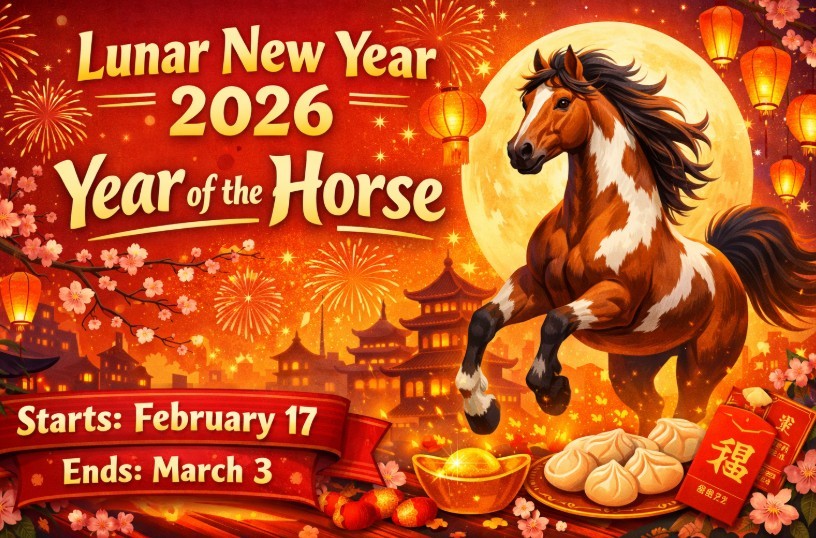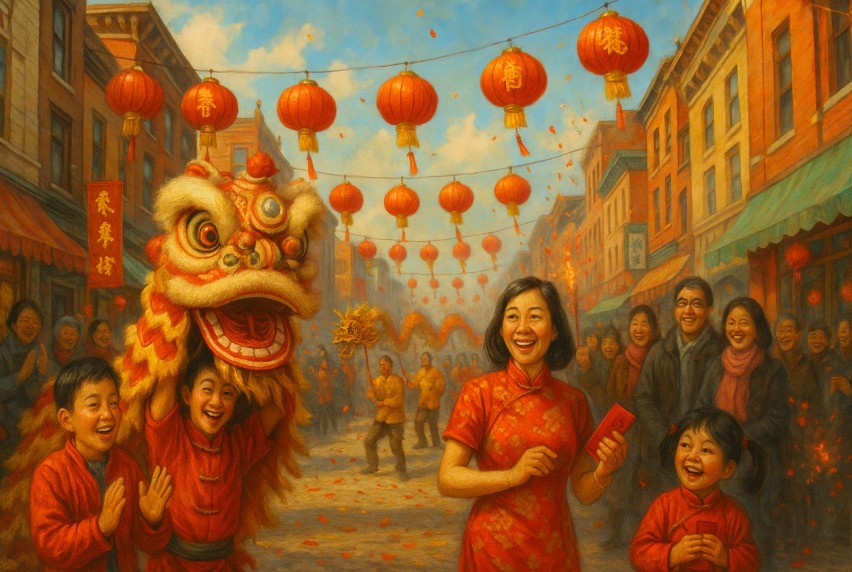Lunar New Year: Significance, Tradition & Celebration of The Fifth Day
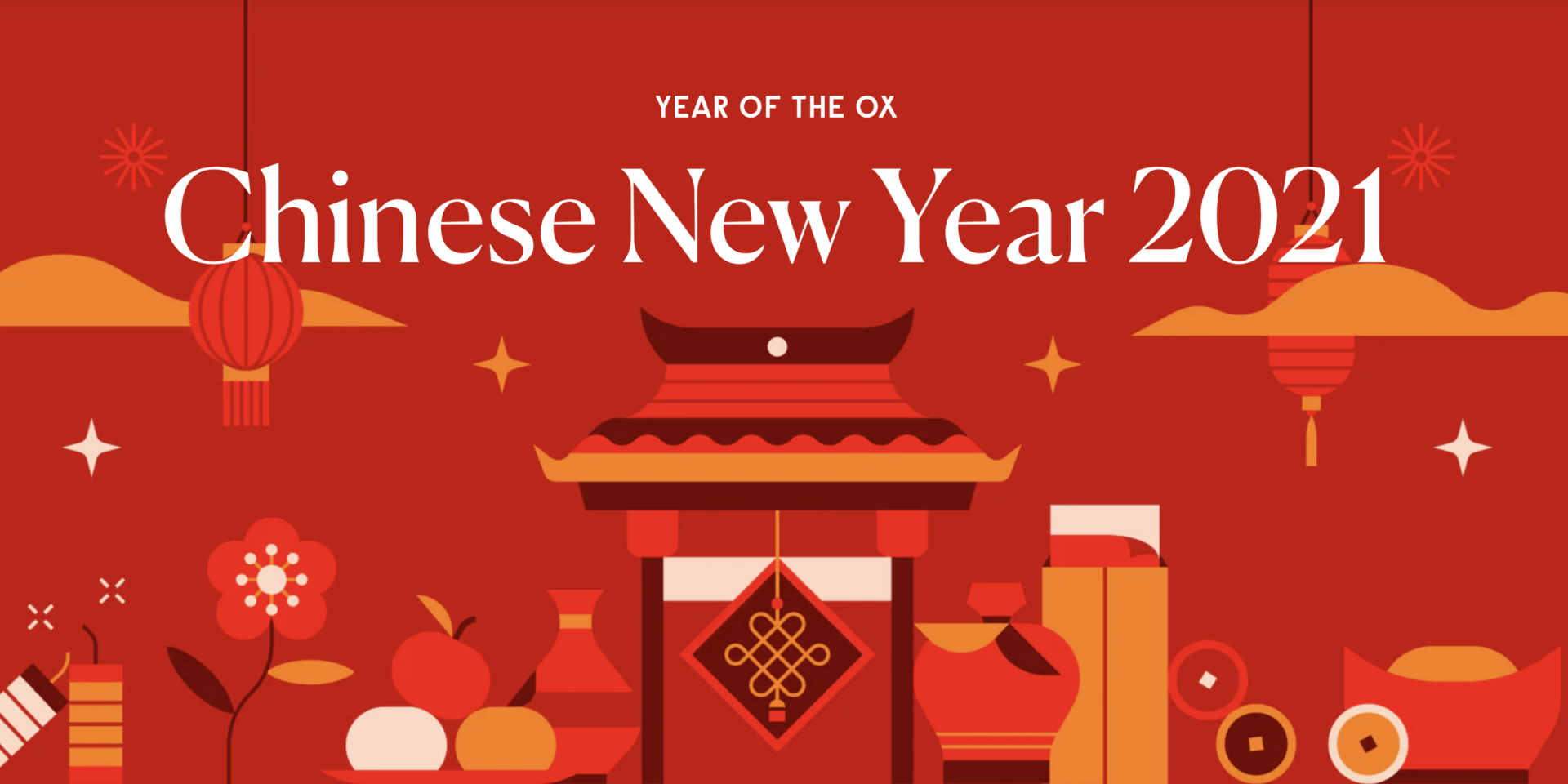 |
| Photo: Chinese New Year |
New Year is a time when one begins his new life with newly established resolutions in our thoughts there are various totally different cultures for celebrating the brand new year. And it’s actually too attention-grabbing to review the Chinese New Year.
Chinese New Year is important for the standard Chinese holidays. In China, it’s also generally known as the Spring Festival, the literal translation of the fashionable Chinese identity. Chinese New Year celebrations historically ran from Chinese New Year’s Day itself, the primary day of the primary month of the Chinese calendar, to the Lantern Festival on the 15th day of the primary month, making the pageant the longest within the Chinese calendar.
Because the Chinese calendar is lunisolar. The Chinese New Year is sometimes called the “Lunar New Year”.
The fifth day of the Chinese Lunar New Year (zhengyue 5)
The fifth day of the traditional Chinese lunar year can be summed up in one word: poverty. The idea originates with an article written by the Tang Dynasty (618-907) author Han Yu (768-824).
In an article headlined "Dispelling poverty," Han identified five poverty demons: poverty of intelligence, of knowledge, of literature, of fate, and friends. Chinese have worked out many ways to break the five, or Po Wu in Chinese.
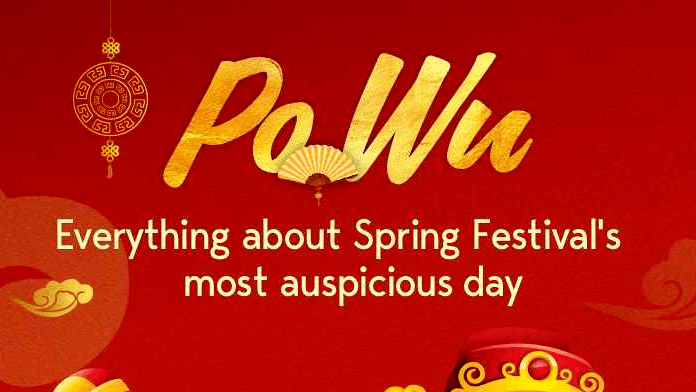 |
| Photo: CGTN |
During the first four days of the new Chinese year, cooking, cleaning, and crying are regarded as ominous, best-avoided taboo activities. That changes on the fifth day, however. The "don'ts" don't work anymore. That is another reason why Chinese name the fifth-day Po Wu: breaking the five taboos on the fifth day.
Birthday of the God of Wealth
The fifth day of the Chinese Lunar New Year is believed to be the birthday of the God of Wealth. People will celebrate with a large banquet. They will also keep their doors or windows open as a welcoming gesture towards the God of Wealth, let off firecrackers in an attempt to attract the attention of the God of Wealth, thus ensuring his favor and good fortune for themselves and their families year ahead.
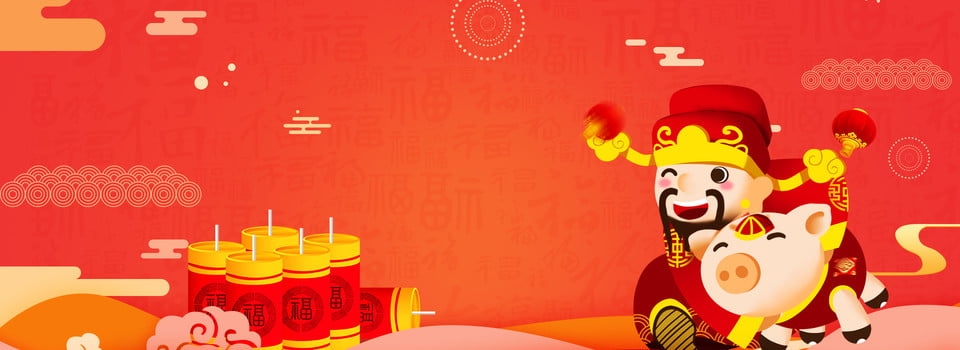 |
| Photo: Pngtree |
Especially in South China, people worship and welcome him inside their house in the hope of amassing more fortune in the new year. Inside they post a picture of a pair of gods of wealth. Each holds a gold ingot. Four characters "Zhao Cai jin bao" appear in the four corners of the poster. Broadly they translate as "Welcome money and treasures will come to all the family."
Sheep heads and carp and are two essential offerings for the money man, as the sheep character yang relates to Xiang, auspiciousness. The only difference between the characters is the radical "yan," or speech. As for carp, yu has the same pronunciation as yu, abundance.
Historically Chinese have often known starvation and so they naturally wish for sufficient food and other necessities stuff at the beginning of each year. Sheep's heads and carp have thus come to symbolize wealth to the Chinese.
According to another old custom, people should open all their windows and doors at 12 o'clock midnight. In that first moment of the fifth day, an open window sincerely welcomes the god of wealth.
Dumplings
Different regions have different ways of celebrating the fifth day. One common custom is to eat dumplings, especially for those who live in North China. In the northern capital, Beijing, families usually make dumplings together at home. Chopping the meat, rolling the flour together should help family members enjoy their time together. The sound of chopping is said to scare of evil spirits away and bring good luck for the coming year.
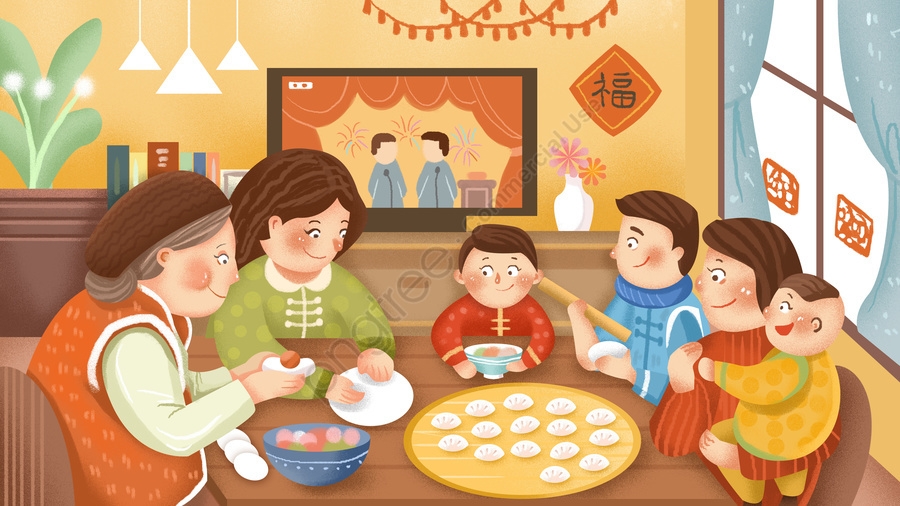 |
| Photo: Pngtree |
Dumplings in other regions have a different meaning. About four hours by high-speed train from Beijing in Tianjin, homemade dumplings have a quite different meaning. Before stuffing dumplings with meat and vegetables, traditional Tianjin residents will mix the chopped meat and vegetables together in a big bowl, Global Times cites.
This stuffing is regarded as a villain who has been chopped and beaten hundreds of times and now will be sealed safely inside the dumplings. Making sure to seal them tight, the Tianjin denizen can lead a peaceful and lucky life in the new year.
Firecrackers
 |
| Photo: Pinterest |
To thoroughly banish bad luck, many Chinese likes to light firecrackers. Firecrackers are usually lit at night. As darkness falls, the noise erupts. The more the noise, the greater the good wishes for a happy new year.
Significance of Chinese Lunar New Year
Chinese New Year is an important vacation in China. Tied to the Chinese lunar calendar, the vacation was historically a time to honor family and heavenly deities in addition to ancestors. It was additionally a time to deliver the household collectively for feasting. With the favored adoption of the Western calendar in 1912, the Chinese joined in celebrating January 1 as New Year’s Day. China, nonetheless, continues to have a good time Chinese New Year with the standard greeting, “Kung Hei Fat Choi.”
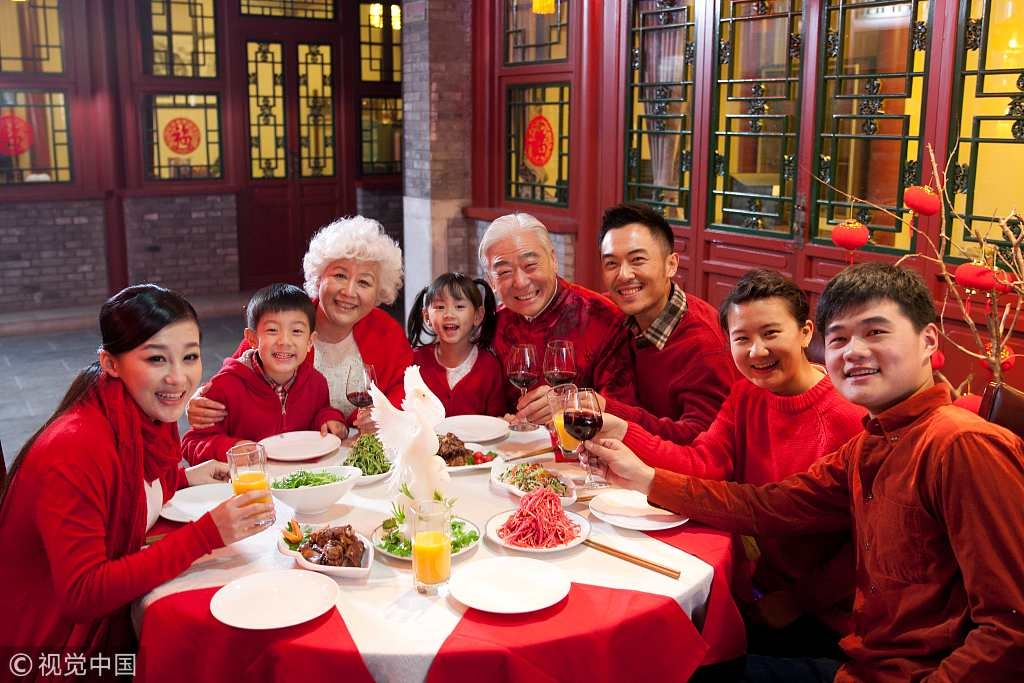 |
| Photo: CGTN |
It means ‘blessing,’ a hope that different folks will get good luck. It is often used throughout the Chinese New Year. The purple background can be a form of ‘good’ as Chinese folks use purple to characterize ‘good luck.’
According to Ave Holidays, on Chinese New Year, households journey lengthy distances to fulfill and make merry. Known because of the “Spring motion” or Chunyun (春运), an excellent migration takes place in China throughout this era as many vacationers courageous crowds to get to their hometowns.
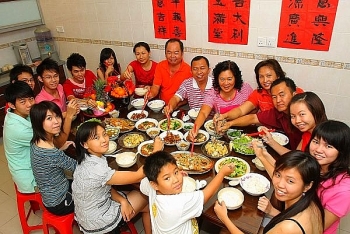 The Second Day of Chinese Lunar New Year: Significance, Tradition, Celebrations. The Second Day of Chinese Lunar New Year: Significance, Tradition, Celebrations. Aside from New Year’s Eve, there are other important days of the 15-day Chinese New Year Festival. People call it by different name and each ... |
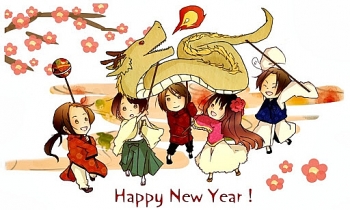 The Third Day of Chinese Lunar New Year: Celebrations and Traditions The Third Day of Chinese Lunar New Year: Celebrations and Traditions Chinese New Year, also known as Spring Festival, is the most important celebration of the year. It usually lasts 16 days, from New Year's Eve ... |
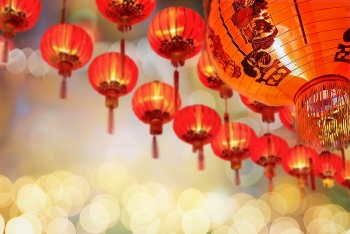 The First Day of Chinese Lunar New Year: Significance, Tradition, Celebrations. The First Day of Chinese Lunar New Year: Significance, Tradition, Celebrations. Do you know why the first day of Chinese Lunar New Year is considered the "birthday of chicken"? The answer is given below by Knowinsiders ... |


